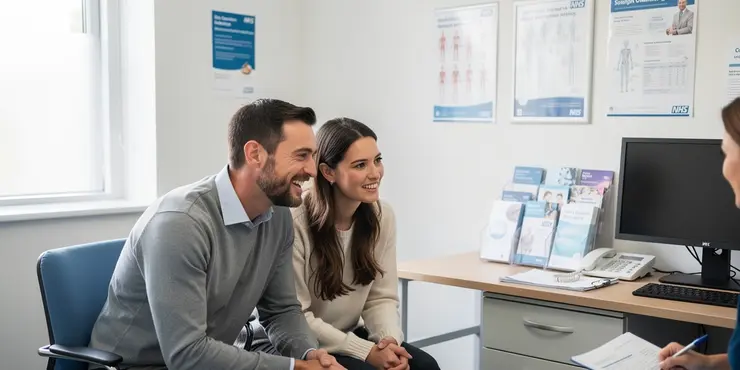
Find Help
More Items From Ergsy search
-
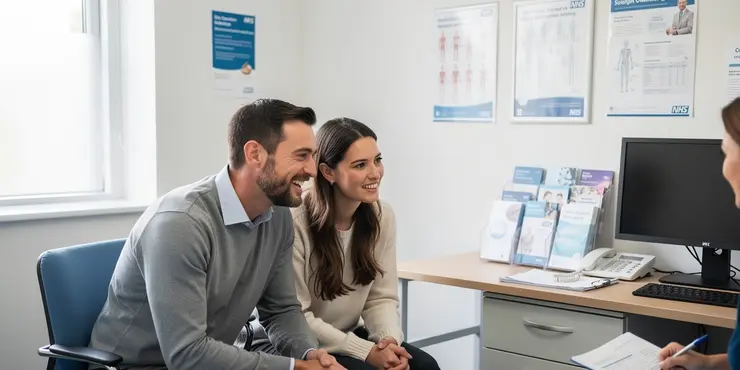
Are there risks associated with IVF?
Relevance: 100%
-
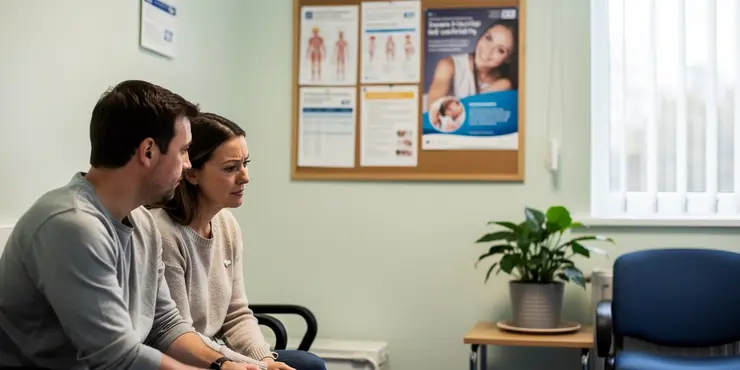
What is IVF?
Relevance: 78%
-

Is IVF successful?
Relevance: 77%
-

Who might need IVF?
Relevance: 73%
-
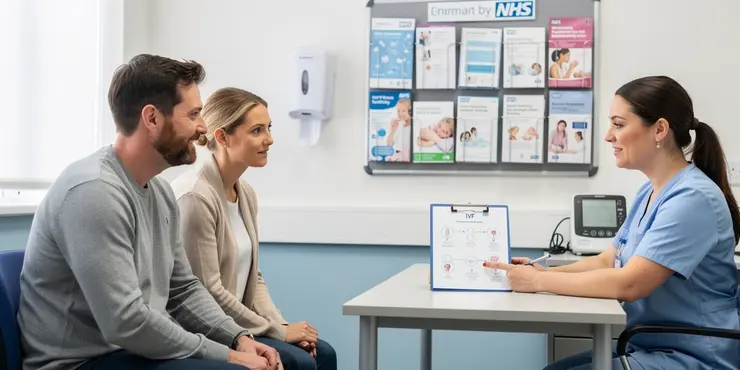
How does IVF work?
Relevance: 72%
-
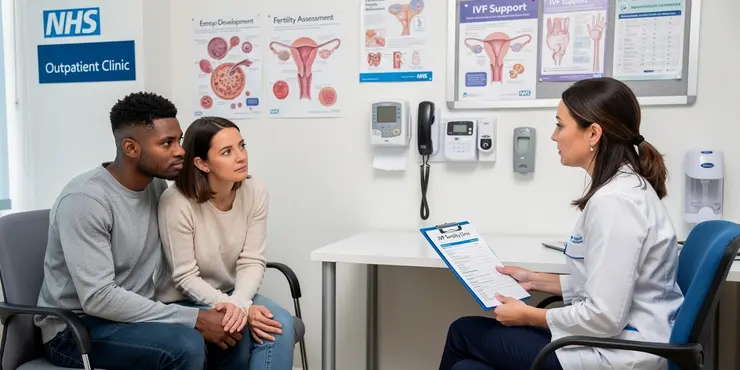
Does IVF guarantee pregnancy?
Relevance: 72%
-
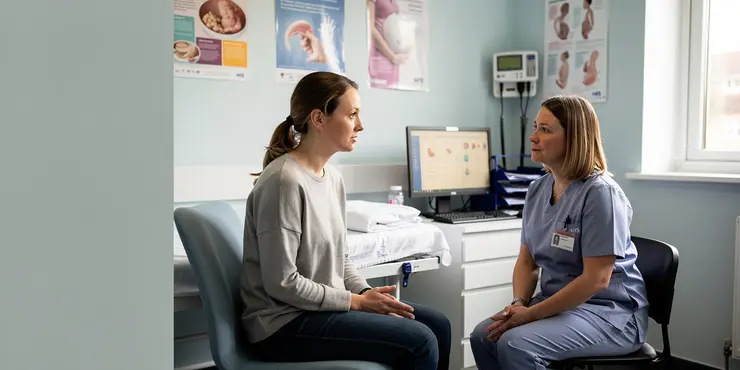
IVF Fertility Treatment from MumsNet
Relevance: 71%
-
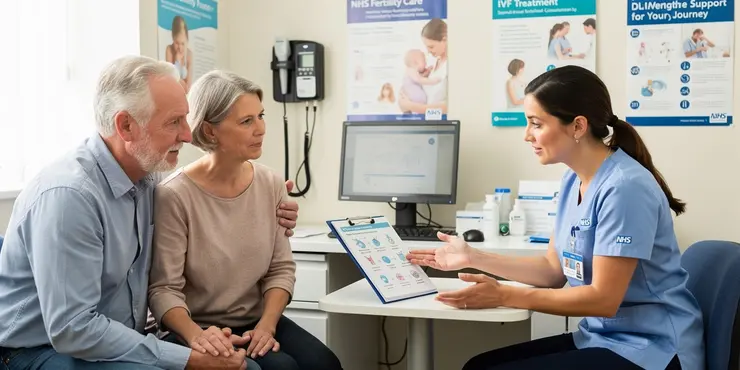
What is IVF and how does it work?
Relevance: 70%
-
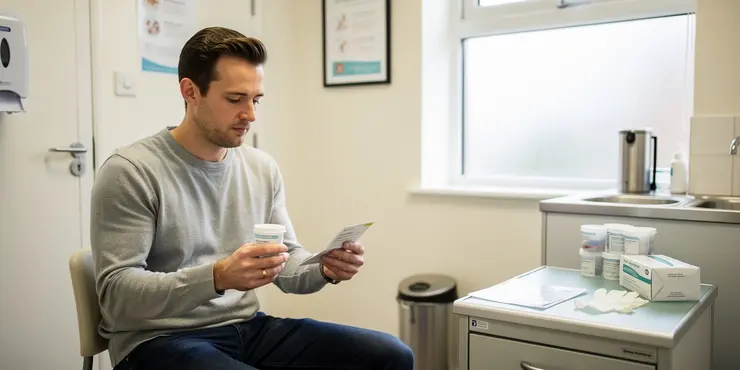
How is the sperm used in IVF?
Relevance: 70%
-
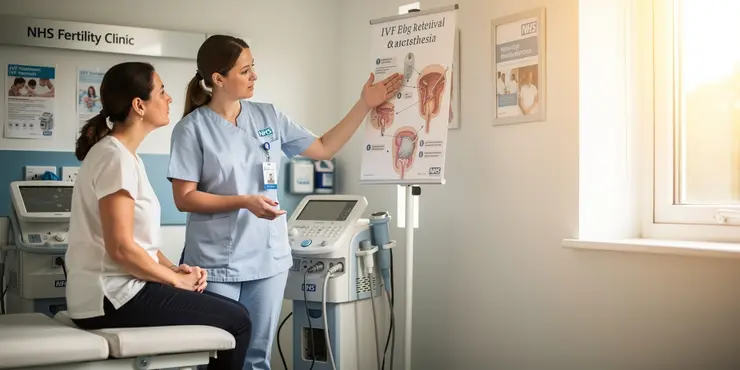
Does IVF require anesthesia?
Relevance: 70%
-
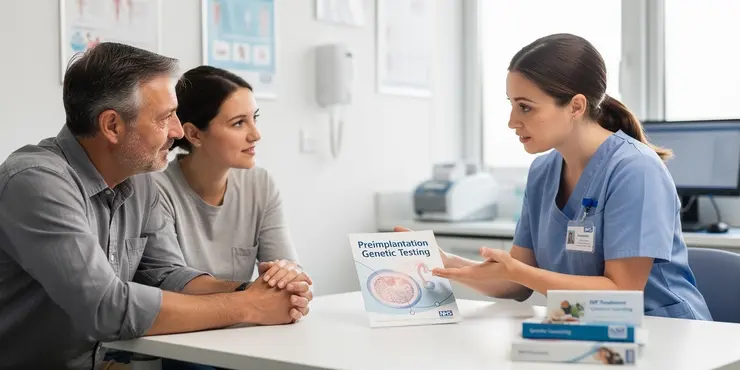
Can IVF be used for gender selection?
Relevance: 69%
-
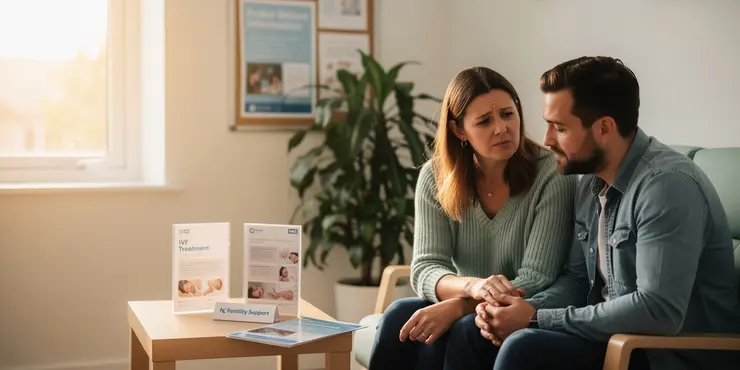
Infertility - IVF Treatment and Patient Information
Relevance: 68%
-

How many embryos are usually transferred in IVF?
Relevance: 67%
-
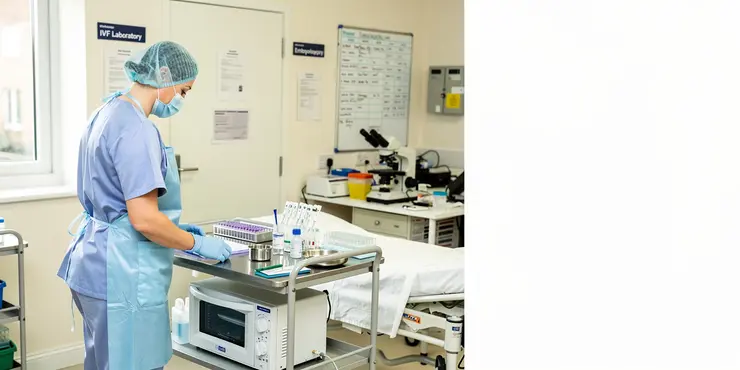
What is the role of the embryologist in IVF?
Relevance: 66%
-
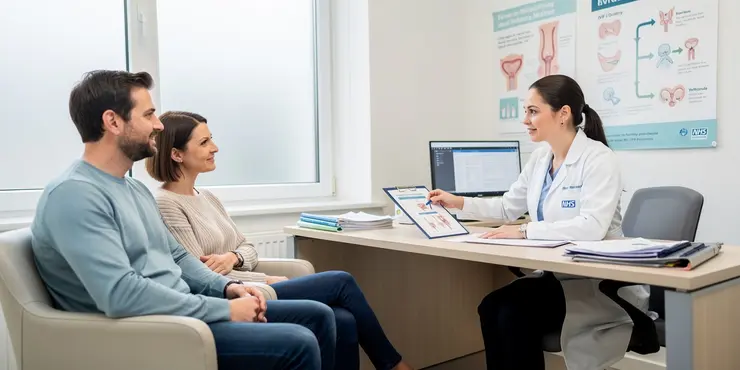
How do clinics determine if IVF is the right option?
Relevance: 65%
-

What should I expect during IVF treatment?
Relevance: 65%
-
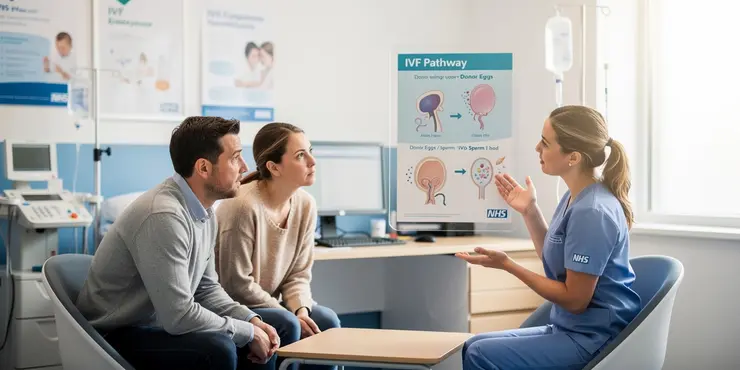
Can IVF be done with donor eggs or sperm?
Relevance: 65%
-

What are the main steps in an IVF cycle?
Relevance: 64%
-

How are embryos transferred during IVF?
Relevance: 63%
-
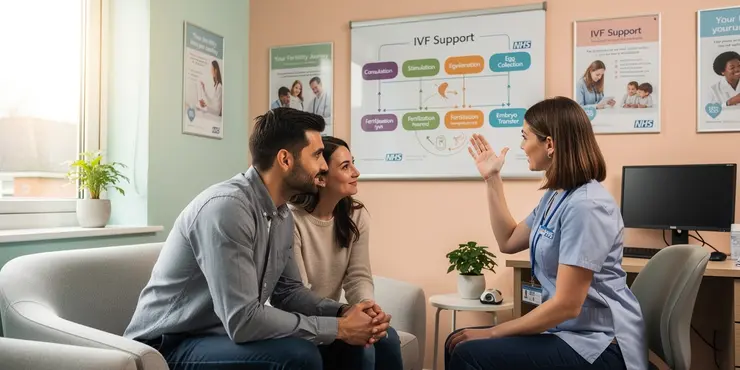
How long does an IVF cycle take?
Relevance: 63%
-
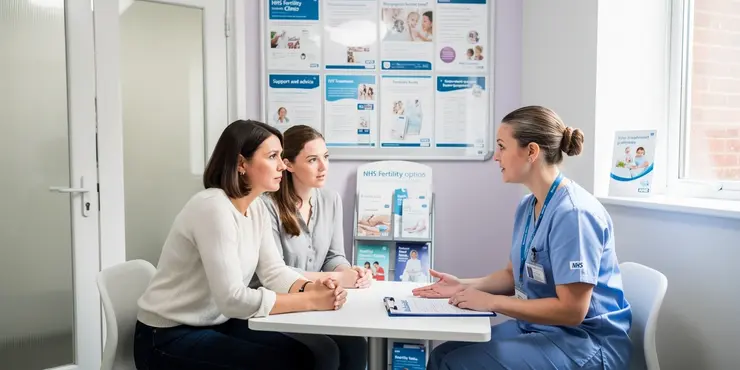
Fertility treatments on the up, but not via the NHS
Relevance: 31%
-
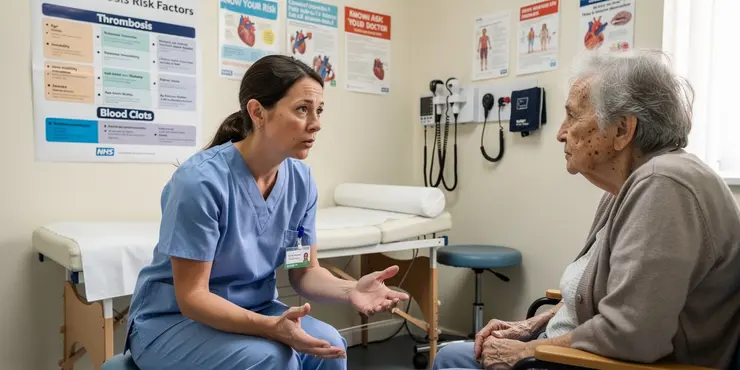
Who is at higher risk for thrombosis?
Relevance: 27%
-
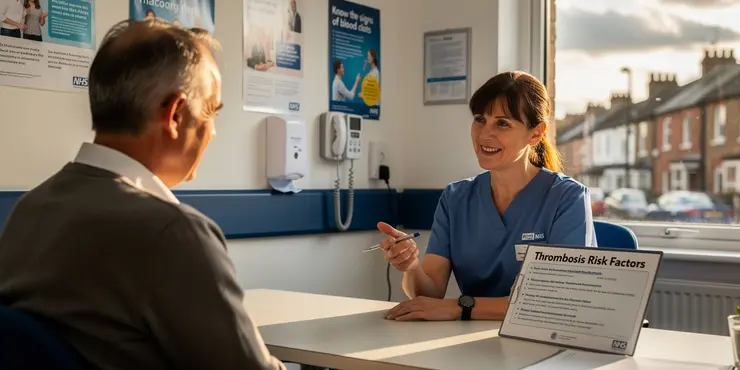
What are the risk factors for thrombosis?
Relevance: 27%
-
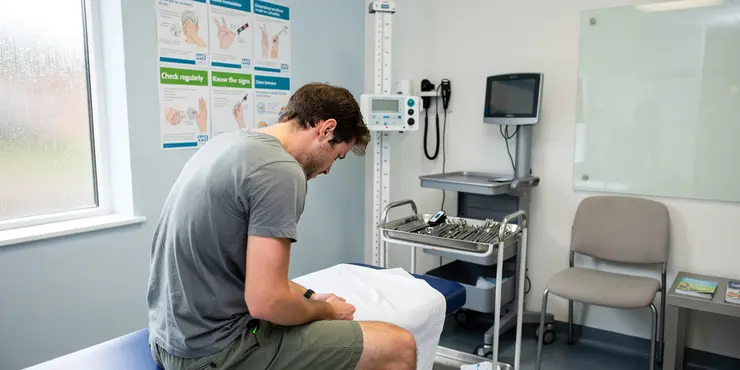
Who is at risk for testicular cancer?
Relevance: 27%
-
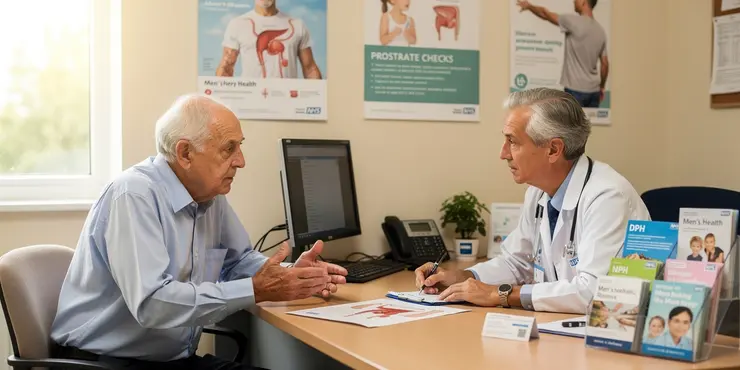
Who is at risk for developing BPH?
Relevance: 27%
-
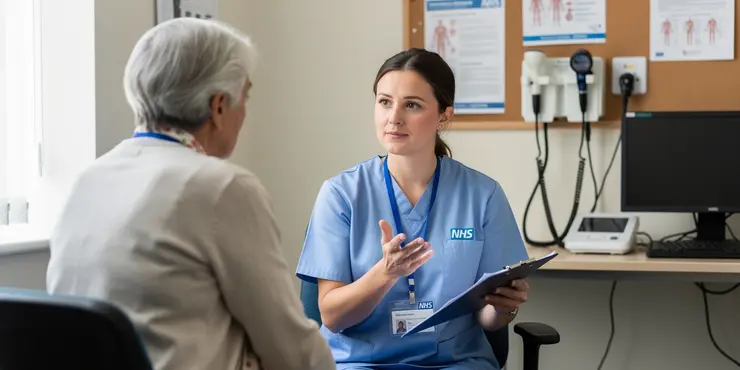
Who is at risk of developing shingles?
Relevance: 27%
-
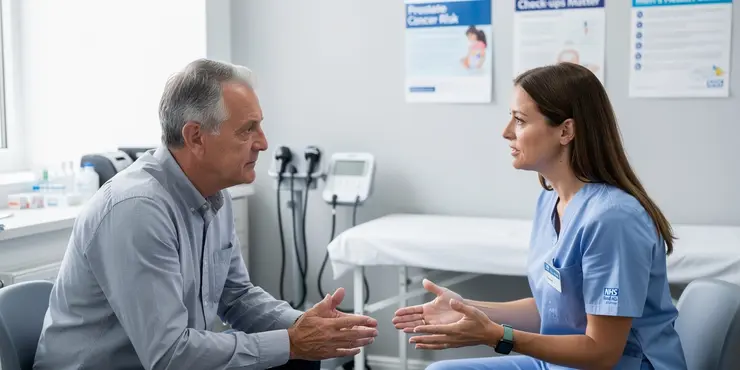
Am I more at risk of prostate cancer?
Relevance: 27%
-

Who is at risk of developing SAD?
Relevance: 27%
-
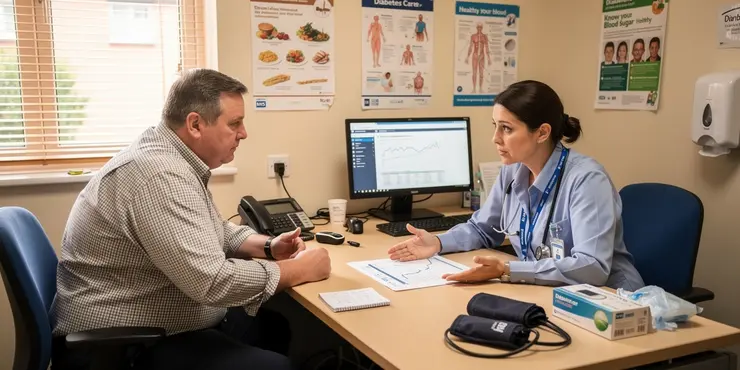
Who is at risk for flesh-eating disease?
Relevance: 27%
-

Are there any risks associated with facelifts?
Relevance: 26%
-
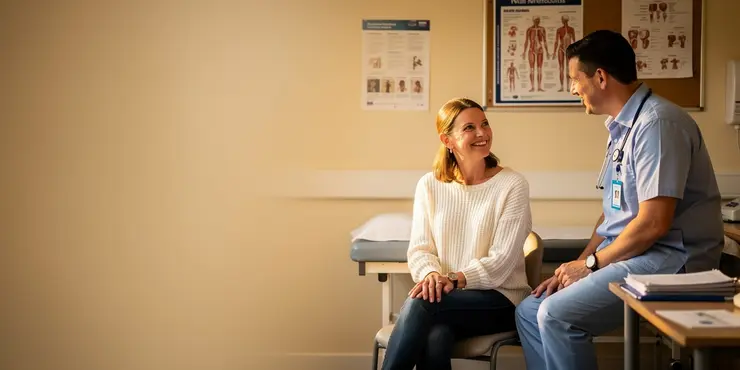
Who is at risk of developing eczema?
Relevance: 26%
-
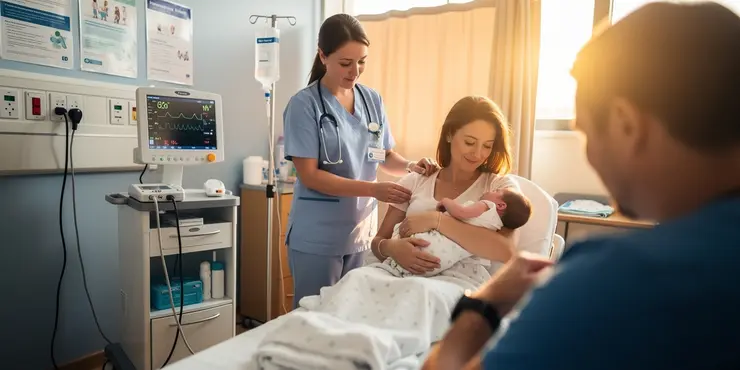
What are the risks associated with a C-section?
Relevance: 26%
-
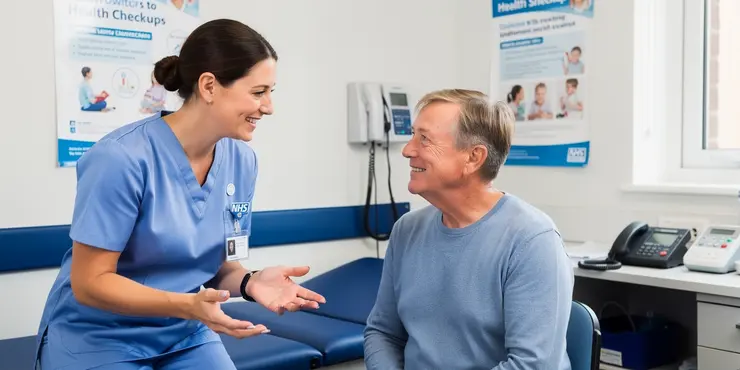
What are the risks associated with cryptocurrencies?
Relevance: 26%
-
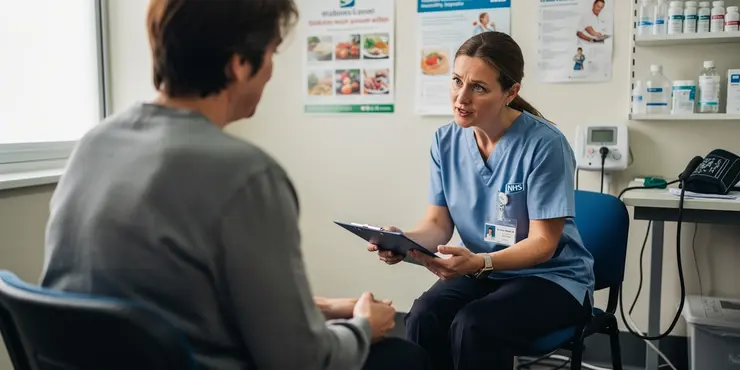
Is there any risk of hypoglycemia with Mounjaro?
Relevance: 26%
-

Are there risks associated with blood transfusions?
Relevance: 26%
-
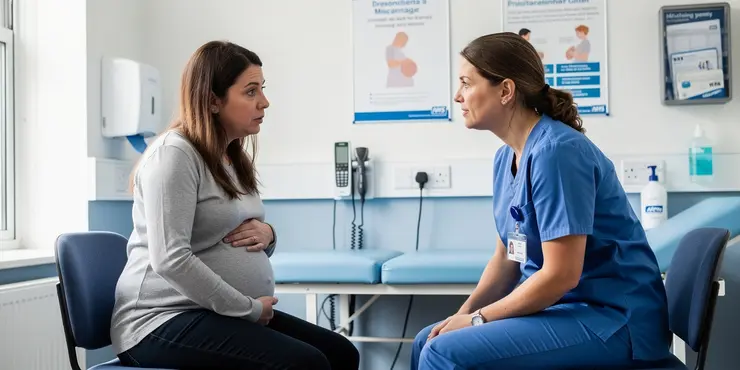
What is the risk of miscarriage? | NHS
Relevance: 26%
-
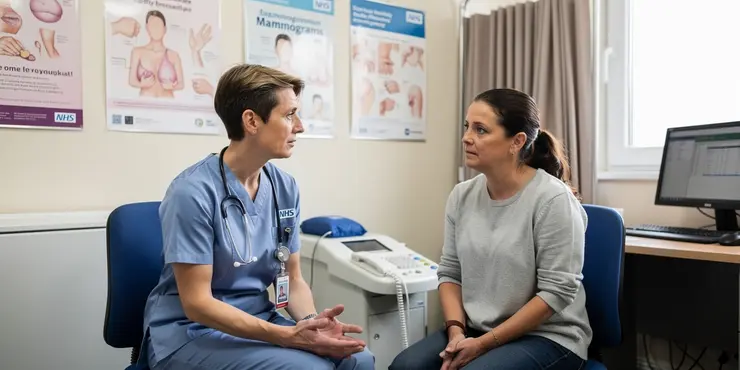
Are there any risks associated with mammograms?
Relevance: 26%
-
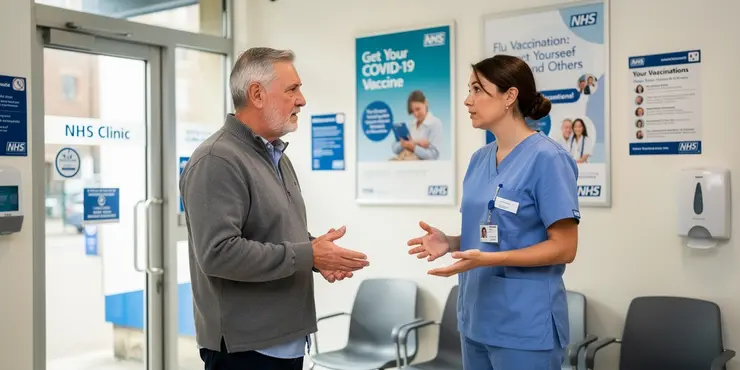
Are adults in the UK at risk from measles?
Relevance: 26%
-
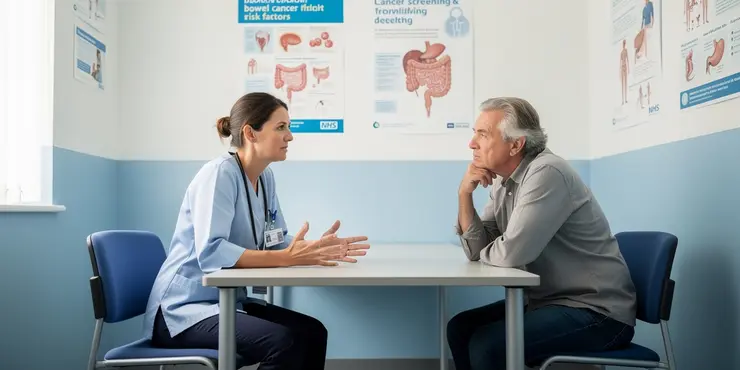
What are the risk factors for bowel cancer?
Relevance: 25%
-
What are the risk factors for a heart attack?
Relevance: 25%
Understanding IVF: An Overview
In vitro fertilisation (IVF) is a widely used assisted reproductive technology that helps individuals and couples who experience difficulty conceiving naturally. The process involves the extraction of eggs and their fertilisation with sperm in a laboratory setting. Once fertilised, the embryos are transferred to the uterus with the hope of achieving pregnancy. While IVF presents a viable solution for many, it is essential to understand the risks associated with this complex medical procedure.
Medical Risks Associated with IVF
One of the primary medical risks associated with IVF is Ovarian Hyperstimulation Syndrome (OHSS). This condition can occur when the ovaries respond excessively to fertility drugs, leading to swollen, painful ovaries. Symptoms can range from mild bloating and discomfort to severe abdominal pain, nausea, and vomiting. In rare cases, OHSS can become life-threatening and require hospitalisation.
Another risk is the increased likelihood of multiple pregnancies, such as twins or triplets. While some may view this as a benefit, multiple pregnancies carry a higher risk of premature birth and complications for both mother and babies. Furthermore, the process of egg retrieval involves a minor surgical procedure, which, although generally safe, can sometimes lead to bleeding, infection, or damage to surrounding organs.
Potential Psychological and Emotional Impacts
IVF can be an emotionally and psychologically taxing journey for many. The process often involves multiple cycles, and for some, it may not lead to a successful pregnancy. The emotional roller-coaster that accompanies IVF can elicit feelings of stress, anxiety, and depression, especially if outcomes are not as hoped. Individuals and couples should be prepared for the potential emotional impact and consider seeking counselling or support groups.
Financial Considerations
While not a direct medical risk, the financial implications of IVF can be significant. In the UK, this procedure is sometimes available through the National Health Service (NHS), but access and eligibility vary by region and personal circumstances. Private treatment can be costly, with prices varying across clinics. Financial strain can add further stress to a process that is already emotionally demanding, reinforcing the need for careful planning and consideration.
Legal and Ethical Aspects
Legal and ethical considerations also form a key part of the IVF process. Issues such as the fate of unused embryos, surrogacy, and the use of donors can present moral and legal dilemmas. Prospective parents should fully understand the legal framework and ethical concerns, ensuring their informed consent and that they adhere to regulations concerning fertility treatments in the UK.
Conclusion
IVF is an important option for many individuals and couples facing infertility, yet it is not without risks. By understanding the potential medical, emotional, financial, and legal implications, individuals can make informed decisions about their reproductive choices. Engaging with healthcare professionals and support networks is crucial in navigating the complexities of IVF successfully.
Understanding IVF: An Overview
IVF is a way to help people have babies when it is hard for them to get pregnant naturally. Doctors take eggs from a woman's body and mix them with a man's sperm in a lab. If the mixing works, they put the eggs, now called embryos, back into the woman's body to try and start a baby. IVF can help many people, but it is important to know about the risks involved in this process.
Medical Risks Associated with IVF
One risk of IVF is a condition called OHSS. This can happen when a woman's ovaries react too strongly to medicine that helps them make eggs. Her ovaries can get swollen and painful. Symptoms might include feeling bloated, having a sore tummy, or feeling sick. Sometimes, it can be very serious and might mean going to the hospital.
Another risk is having twins or triplets. Some people might like this, but it can make having the babies more complicated. It can lead to the babies being born too early and having health problems. Also, taking the eggs out of the body means having a small operation, which can sometimes cause problems like bleeding or infection.
Potential Psychological and Emotional Impacts
Going through IVF can make people feel a lot of different emotions. Sometimes, couples might try IVF many times, and it doesn't always work. This can make them feel stressed, worried, or sad. It's important for people to be ready for these feelings and maybe talk to a counselor or join support groups to help them cope.
Financial Considerations
IVF can be expensive and might cause money worries for some people. In the UK, some people can get IVF through the NHS, but not everyone. If they need to go to a private clinic, it can cost a lot of money. Because of this, it's important to think about money before starting IVF and plan carefully.
Legal and Ethical Aspects
IVF also means thinking about laws and what is right or wrong. Questions like what to do with unused embryos, using a surrogate to carry the baby, or using sperm or eggs from donors can be tricky. Parents need to understand the rules and what they believe is right about these things and make sure they agree to everything involved in IVF.
Conclusion
IVF helps many people who can't have babies easily, but it does have risks. By learning about the medical, emotional, money, and legal sides, people can make better choices. It is important to talk to doctors and find help from others to understand and go through IVF successfully.
Frequently Asked Questions
What are the common risks associated with IVF?
Common risks include multiple pregnancies, ovarian hyperstimulation syndrome (OHSS), and the potential for ectopic pregnancy.
Is there a risk of multiple births with IVF?
Yes, there is an increased risk of multiple births, such as twins or triplets, if multiple embryos are transferred during IVF.
What is ovarian hyperstimulation syndrome (OHSS)?
OHSS is a condition where the ovaries become swollen and painful due to excessive hormone stimulation, and it can occur in women undergoing IVF.
Can IVF increase the risk of birth defects?
Studies suggest a slight increase in some birth defects with IVF, but the overall risk remains low.
Is there an increased risk of ectopic pregnancy with IVF?
Yes, IVF slightly increases the risk of an ectopic pregnancy, where the embryo implants outside the uterus.
Are there psychological risks associated with IVF?
IVF can be emotionally stressful, and some individuals or couples may experience anxiety or depression.
What are the risks of anesthesia during IVF procedures?
Anesthesia risks are similar to those in other medical procedures and may include reactions to medications and respiratory issues.
Is there a cancer risk associated with IVF?
Studies have not shown a significant increase in cancer risk due to IVF, though ongoing research continues to monitor long-term effects.
Can IVF impact future fertility?
There is no evidence that IVF negatively affects future fertility for women who undergo the procedure.
Are there risks of infections with IVF?
There is a small risk of infection from procedures like egg retrieval, but it is rare and usually well-managed.
Does IVF increase the risk of miscarriage?
Miscarriage rates for IVF pregnancies are similar to those for natural conception after adjusting for maternal age.
What are the long-term health risks for children conceived through IVF?
Most studies indicate that children conceived through IVF are healthy, though more research is ongoing.
Can IVF cause complications during pregnancy?
IVF pregnancies may have a higher risk of complications like preterm birth and low birth weight, particularly with multiple gestations.
Are there risks of blood clots with IVF treatment?
Women undergoing IVF are at a slightly increased risk for blood clots, particularly if they have OHSS.
Can lifestyle choices reduce IVF risks?
Healthy lifestyle choices, such as maintaining a healthy weight and not smoking, can help mitigate some IVF risks.
What role does maternal age play in IVF risks?
Older maternal age can increase the risk of complications associated with IVF, such as miscarriage and chromosomal abnormalities.
Is there a risk of failed IVF cycles?
Yes, not all IVF cycles result in pregnancy, and it may take several attempts before achieving success.
How does egg retrieval affect women's health?
Egg retrieval is generally safe but can cause temporary discomfort, bleeding, or very rarely, injury to surrounding organs.
Are there risks related to embryo transfer in IVF?
The risks are minimal, but embryo transfer can occasionally cause minor physical discomfort or cramping.
Does IVF increase the risk of preeclampsia?
Some studies suggest a slightly increased risk of preeclampsia in pregnancies conceived via IVF, especially with multiple pregnancies.
What problems can happen with IVF?
IVF means having a baby with a doctor's help. Sometimes, things might not go as planned. Here are some common problems:
- Lots of Babies: Sometimes, more than one baby can grow. This can be hard for the mother and babies.
- Feeling Sick: The medicines can make you feel unwell.
- Body Changes: Some people get headaches or feel tired.
- Surgery Risks: The doctor might need to do small operations, and these can have risks.
To help understand, you can:
- Ask the doctor to explain things simply.
- Use pictures or videos to learn.
- Talk to someone who knows about IVF.
Some common risks are having more than one baby at a time, a problem with the ovaries called OHSS, and a chance of the baby growing outside the womb.
Can IVF cause more than one baby to be born?
Yes, there is a higher chance of having more than one baby, like twins or triplets, if doctors put more than one embryo in the uterus during IVF.
What is ovarian hyperstimulation syndrome (OHSS)?
Ovarian hyperstimulation syndrome (OHSS) is a health problem. It can happen to women using fertility treatments. OHSS makes the ovaries swell and hurt. It can make you feel sick.
If you want to understand more, ask your doctor. You can also use websites that explain health in simple words.
OHSS is when your ovaries get big and sore because of too much hormone. This can happen to women having IVF treatment.
Does IVF Make Birth Defects More Likely?
IVF is a way to help people have babies, but some people worry it might cause more birth defects. Birth defects are health problems babies can have when they are born.
Here is a simple way to understand:
- IVF stands for "In Vitro Fertilization." This means making a baby with the help of doctors.
- Some studies show there might be a small increase in birth defects with IVF.
- But doctors are not sure if it's because of IVF or other reasons.
If you have questions, talk to a doctor. They can help you understand more.
Here are some things that can help:
- Ask someone to read with you.
- Use pictures or videos to learn more.
- Write down questions you want to ask a doctor.
Some studies show there might be a small rise in certain birth defects with IVF. But, the chance of this happening is still low.
Can IVF cause more ectopic pregnancies?
This means, does using IVF make it more likely for a baby to grow outside the womb?
IVF: This is a special way to help people have babies.
Ectopic Pregnancy: This is when a baby starts to grow outside the womb. This is not safe for the mom or the baby.
If you want to know more or need help, you can:
- Talk to a doctor
- Read easy books about how babies are made
- Watch videos made for kids about pregnancy
Yes, IVF makes it a little more likely to have an ectopic pregnancy. This is when the baby starts growing outside the womb (uterus).
Helpful tools:
- Ask someone you trust to explain it.
- Use pictures or videos to understand better.
Can IVF affect how we feel and think?
IVF can be very hard on your feelings. Some people or couples might feel worried or sad.
What could happen with anesthesia during IVF?
Anesthesia helps you sleep or not feel pain during IVF. Sometimes, it can have risks. Here are some things that could happen:
- You might feel sick or throw up.
- You could feel dizzy or tired.
- Your throat might feel sore.
- You might have trouble breathing.
- You could have an allergic reaction.
Doctors are very careful and watch you closely to keep you safe. If you have questions, you can ask your doctor. Talk to someone you trust for support. You can also use pictures or videos to help understand.
Anesthesia can have risks. These are like other medical procedures. Risks can include bad reactions to the medicine or problems with breathing.
Can IVF cause cancer?
IVF is a way to help people have babies.
Some people ask if IVF can cause cancer.
Doctors have looked into this question.
Using IVF does not seem to make cancer more likely.
If you are worried, talk to your doctor.
They can help answer your questions.
Also, reading with a friend or using a story app can help.
Doctors have not found that IVF makes cancer risk a lot higher. But, they are still studying to see what happens in the long run.
Tools that might help you understand research better are talking to a doctor or looking for simple videos that explain these topics.
Can IVF affect having babies later?
There is no proof that IVF makes it harder for women to have babies in the future.
Can IVF cause infections?
Having a procedure like taking eggs out of the body can sometimes cause an infection. But it doesn't happen often, and doctors know how to take care of it.
Does IVF make miscarriage more likely?
The chance of losing a baby early in IVF is about the same as when getting pregnant naturally, once you consider the mom's age.
What health problems might children born through IVF have when they grow up?
When children are born using a special way to help parents have babies, called IVF, there might be some health things to think about. This means we want to know if being born this way affects them when they are older.
It's good for parents to talk to doctors about this. Doctors can tell them what to look out for and how to help their child stay healthy. Reading books or using apps can also help parents learn more about IVF and health.
Most studies show that children born through IVF are healthy. But scientists are still studying more about it.
Can IVF make pregnancy harder?
Having a baby through IVF can sometimes have more problems. The baby might be born early or be smaller than usual, especially if there is more than one baby.
Can IVF treatment cause blood clots?
When you have IVF treatment, there is a small chance of getting blood clots. Blood clots can happen when your blood thickens and forms a lump.
If you are worried, talk to your doctor. They can help you understand the risks.
It can help to use tools like picture cards or apps that speak text out loud to understand better.
Women having IVF treatment might have a small chance of getting blood clots. This is more likely if they have OHSS.
It can be helpful to talk to your doctor if you have concerns. They can give you advice and support.
You can also use tools like text-to-speech or reading apps if reading is difficult.
Can the way you live make IVF safer?
Making good choices can help make IVF safer. Try to stay at a healthy weight and don't smoke. This can help lower some risks.
How does a mom's age affect IVF risks?
IVF helps people have babies. It stands for In Vitro Fertilization.
If a mom is older, there might be more risks in IVF. This means there can be more problems.
Doctors can help moms understand these risks. They make sure moms and their babies stay safe.
Support tools:
- Ask doctors questions if you are worried.
- Talk to other families who have done IVF.
When a woman has a baby at an older age, there can be more problems with having a baby through IVF. These problems can include losing the baby or issues with the baby's chromosomes.
Can IVF Sometimes Not Work?
Sometimes, IVF does not work the first time to make a baby. You might need to try more than once before it works.
How does taking eggs from the body affect a woman's health?
Taking out eggs from the body is usually safe. But it can sometimes hurt a little. You might bleed a bit, or very rarely, hurt the nearby body parts.
Are there any risks when putting a baby embryo into the womb with IVF?
The risks are very small. But sometimes, putting the embryo in can make your body feel a bit uncomfortable or cause some cramps.
Does IVF make it more likely to get preeclampsia?
Some studies say that having a baby through IVF might slightly raise the risk of preeclampsia. This is more common if you are having twins or more.
Supportive tools and techniques:
- Ask your doctor to explain things slowly and clearly.
- Use diagrams or pictures to understand better.
- Have a friend or family member take notes during doctor visits.
- Look for videos online about preeclampsia and IVF that are easy to understand.
Useful Links
This website offers general information and is not a substitute for professional advice.
Always seek guidance from qualified professionals.
If you have any medical concerns or need urgent help, contact a healthcare professional or emergency services immediately.
Some of this content was generated with AI assistance. We’ve done our best to keep it accurate, helpful, and human-friendly.
- Ergsy carfully checks the information in the videos we provide here.
- Videos shown by Youtube after a video has completed, have NOT been reviewed by ERGSY.
- To view, click the arrow in centre of video.
- Most of the videos you find here will have subtitles and/or closed captions available.
- You may need to turn these on, and choose your preferred language.
- Go to the video you'd like to watch.
- If closed captions (CC) are available, settings will be visible on the bottom right of the video player.
- To turn on Captions, click settings .
- To turn off Captions, click settings again.
More Items From Ergsy search
-

Are there risks associated with IVF?
Relevance: 100%
-

What is IVF?
Relevance: 78%
-

Is IVF successful?
Relevance: 77%
-

Who might need IVF?
Relevance: 73%
-

How does IVF work?
Relevance: 72%
-

Does IVF guarantee pregnancy?
Relevance: 72%
-

IVF Fertility Treatment from MumsNet
Relevance: 71%
-

What is IVF and how does it work?
Relevance: 70%
-

How is the sperm used in IVF?
Relevance: 70%
-

Does IVF require anesthesia?
Relevance: 70%
-

Can IVF be used for gender selection?
Relevance: 69%
-

Infertility - IVF Treatment and Patient Information
Relevance: 68%
-

How many embryos are usually transferred in IVF?
Relevance: 67%
-

What is the role of the embryologist in IVF?
Relevance: 66%
-

How do clinics determine if IVF is the right option?
Relevance: 65%
-

What should I expect during IVF treatment?
Relevance: 65%
-

Can IVF be done with donor eggs or sperm?
Relevance: 65%
-

What are the main steps in an IVF cycle?
Relevance: 64%
-

How are embryos transferred during IVF?
Relevance: 63%
-

How long does an IVF cycle take?
Relevance: 63%
-

Fertility treatments on the up, but not via the NHS
Relevance: 31%
-

Who is at higher risk for thrombosis?
Relevance: 27%
-

What are the risk factors for thrombosis?
Relevance: 27%
-

Who is at risk for testicular cancer?
Relevance: 27%
-

Who is at risk for developing BPH?
Relevance: 27%
-

Who is at risk of developing shingles?
Relevance: 27%
-

Am I more at risk of prostate cancer?
Relevance: 27%
-

Who is at risk of developing SAD?
Relevance: 27%
-

Who is at risk for flesh-eating disease?
Relevance: 27%
-

Are there any risks associated with facelifts?
Relevance: 26%
-

Who is at risk of developing eczema?
Relevance: 26%
-

What are the risks associated with a C-section?
Relevance: 26%
-

What are the risks associated with cryptocurrencies?
Relevance: 26%
-

Is there any risk of hypoglycemia with Mounjaro?
Relevance: 26%
-

Are there risks associated with blood transfusions?
Relevance: 26%
-

What is the risk of miscarriage? | NHS
Relevance: 26%
-

Are there any risks associated with mammograms?
Relevance: 26%
-

Are adults in the UK at risk from measles?
Relevance: 26%
-

What are the risk factors for bowel cancer?
Relevance: 25%
-
What are the risk factors for a heart attack?
Relevance: 25%


